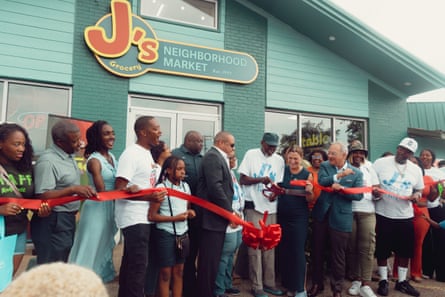How Grocery Stores Drive Community Health and Access to Fresh Food
A local grocery store offers much more than convenience. In many communities, the presence of a well-stocked supermarket is a vital part of daily life and health. These stores provide access to fresh foods, create gathering spaces, and serve as pillars of economic support. Let’s explore how the modern grocery store contributes to healthier, more connected neighborhoods.

The Heart of Neighborhood Nutrition
Grocery stores are central to providing healthy, affordable food to families. Without local access, many residents face long trips for basic groceries, often ending up with heavily processed options. A store offering fresh fruits and vegetables can transform diets and wellness outcomes overnight.
An inspiring example comes from Clarksdale, Mississippi, where J’s Grocery recently reopened with a focus on selling fresh produce. This Black-owned grocery store, established in 1997, joined forces with local farmers and organizations to stock culturally relevant options. Their initiative means more people can buy fresh greens, okra, and locally grown staples without leaving their neighborhood. Such efforts help combat "food apartheid" and close nutrition gaps for families who need it most.
Community Revitalization Through Grocery Stores
A grocery store can breathe new life into a community. The reopening of J’s Grocery turned into a celebration, bringing together over 200 residents with music, art, and food demonstrations. These stores often become informal gathering points, supporting local schools and offering third spaces for conversation and relaxation. These activities create a sense of belonging and pride. The presence of a full-service grocery store also boosts nearby property values and draws other businesses to the local area.
Local leaders and farmers in Mississippi have shown that a neighborhood supermarket can do more than sell groceries. By partnering with nonprofits and agricultural groups, they have made fresh food more accessible and inspired a return to locally owned markets—a key part of the town’s heritage.
The Future of Grocery Store Development
Communities across the country are pushing for new stores and innovative solutions. For example, some cities are now considering proposals for stores in neighborhoods where traditional chains once closed or never opened. One Louisville project aims to fill gaps left when previous grocery chain plans were rejected, showing this trend is nationwide.
When communities and store owners work together, they can change food systems for good. More grocery stores mean more jobs, fresher food, and a stronger sense of local identity.
Conclusion: The Power of Your Local Grocery Store
A grocery store is much more than a spot for weekly shopping. It is a hub for wellness, culture, and social life. Search for ways to support locally owned stores near you, and encourage community initiatives that bring healthy food closer to every resident. Every visit helps build a stronger future for your neighborhood.